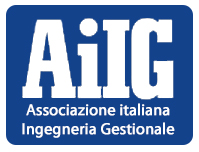Pubblicazioni
Progetti di ricerca
1. January 2018 – Present, Principal Investigator for the research project "MOBILITI – The academic MOBILITy in Italy: determinants, relevance and impact" financed by the University of Bologna to sustain the basic research through the channel "ALMA IDEA Grant Senior" with deadline January 2020.
2. June 2017-February 2018, Responsible (with M. Mura) for the management part of the Accelerator Project financed by the Climate KIC entitled Integrated Technology for Electric Mobility (TIME) (Project Leader: Prof. Claudio Rossi).
3. June 2017- February 2018, Responsible (with M. Mura) for the management part of the Pathfinder Project financed by the Climate KIC entitled Mechanical storage for household renewables (Project Leader: Prof. Alberto Bellini).
4. 2011-2013, Principal Investigator for the research project “Corporate Venture Capital and Firm's Innovative Capabilities” (Grant number ES/I028625/1) at the Business, Management and Economics Department of SPRU (Science and Technology Policy Research), University of Sussex, REGNO UNITO and financed by the Economic and Social Research Council (ESRC).
5. January – August 2009, Responsible for the Investment Readiness Project (advisor Prof. G. Murray), UK Department for Business Enterprise & Regulatory Reform (BERR)
